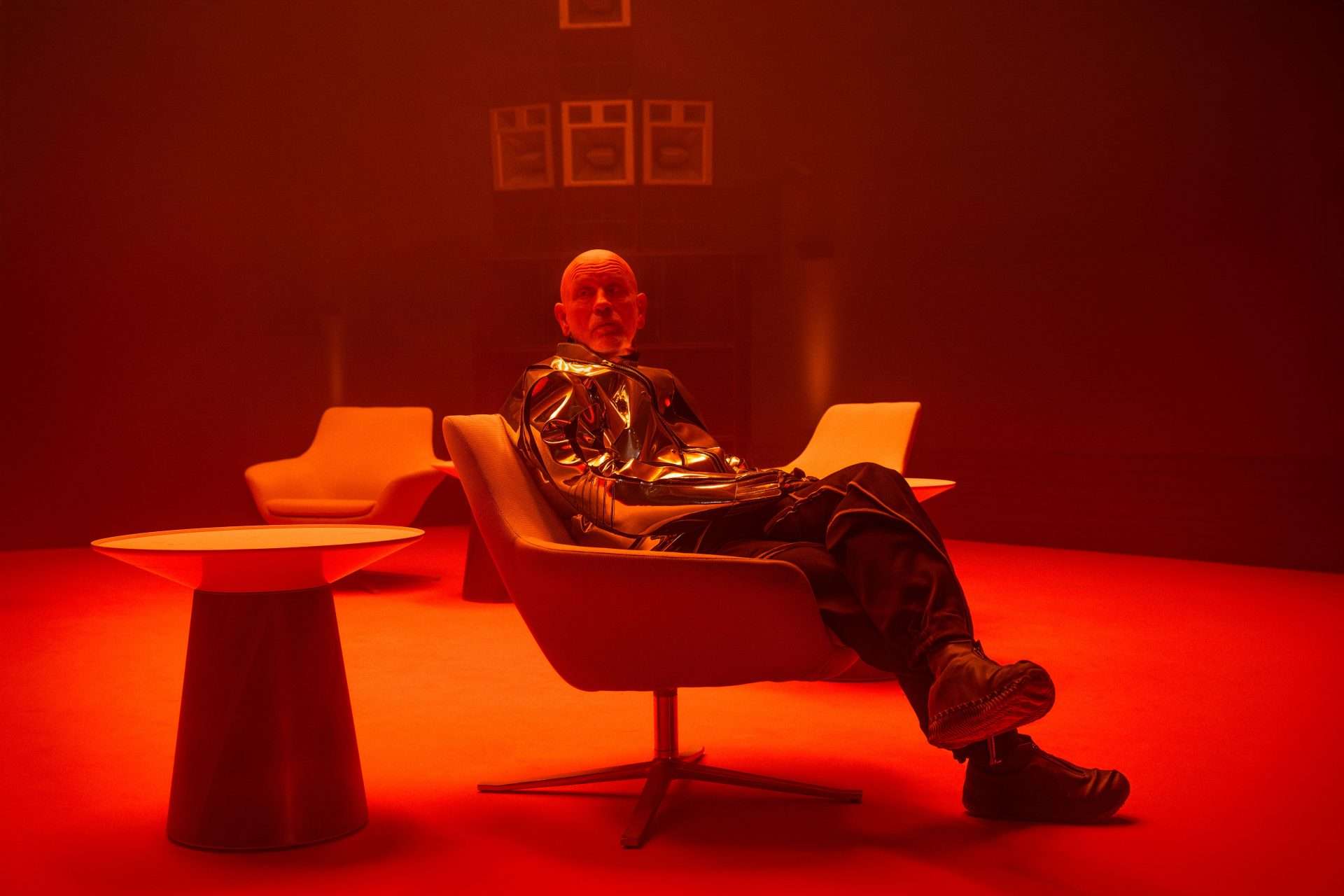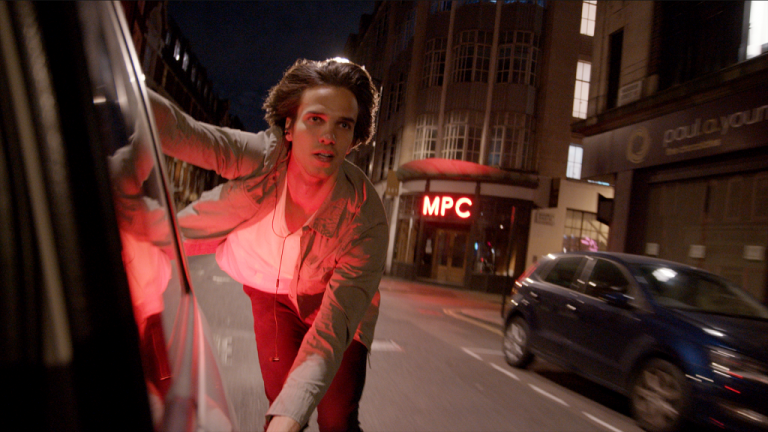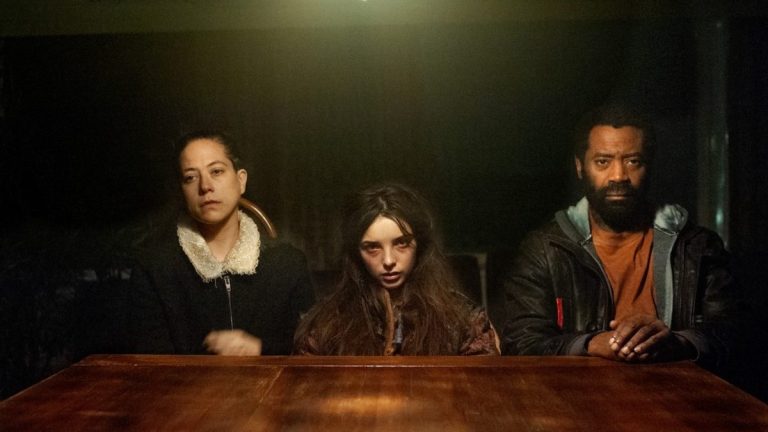Intentionally or not, all films are, to a degree, products of the times in which they are made. So when debuting writer-director Mark Anthony Green unveils “Opus,” a cult-related comedy-thriller, one simply can’t help but connect the dots and notice that the biggest name attached to the project may very well be none of those in front of nor behind the camera, but rather the first one to appear on screen as soon as the film begins.
Green’s directorial debut is produced by none other than A24, a distributor whose savvy marketing techniques, mostly astute acquisition skills and endlessly memeable merchandising moves have cultivated them with a dedicated fanbase; equally, A24 and its fanfare have been subject to just as much scrutiny for the rather silly implication that a distribution company would have the sort of “artistic personality” implied by such exaltation. Whatever the case may be, “Opus” stands as a timely opportunity for the distributor to platform a worthy lampooning of such behavior from a voice new enough to have an outside perspective. In an ironic twist, however, Green’s skewering techniques prove far too tame to give the film its own comparably rabid fandom.
Perhaps that’s because the subject of his film, very much by design, is one whose own experiences have been of so little note one way or the other. This much is articulated outright by a friend of Ariel Ecton (Ayo Edebiri), a music journalist stuck feeding her worthwhile article pitches to an editor (Murray Bartlett) more than happy to politely embrace them before assigning them to someone more experienced on the staff. Left unfulfilled by her current position, Ariel feels as though she never even has the opportunity to reach out for a story and claim it as her own.
This, of course, changes when the mysterious popstar Moretti (John Malkovich) reemerges from a three-decade hiatus to announce the release of a new album, and a subsequent listening party for select members of the press on his remote compound. Alongside her editor, Ariel is inexplicably offered one of the six coveted invitations, and is thus swept to Moretti’s secluded desert abode for an increasingly unhinged weekend in the presence of the man whose personality sucks the air right out of the room.

The casting of Malkovich in this particular role is undoubtedly the most fruitful selling-point for A24 (though Edebiri’s rising star is nothing to dismiss, either), comparable to any number of gimmicky casting choices left for Nicolas Cage in the past few decades. Entire Charlie Kaufman scripts have been written under the influence of the Malkovich Mystique, so to cast the eccentrically subdued legend in the role of a seismically popular sex god musician appears to be the first step in curating Green’s offbeat vision of celebrity worship.
Moretti as a figure is the sort of unwaveringly acclaimed and fashionable name whose legend is compounded even further by his recurring and lengthy absences; for reference, imagine if Víctor Erice were Michael Jackson at the height of his cultural standing. As such, Malkovich’s unique brand of stiff and mannered aura works both for and against “Opus.” On one hand, the actor clearly communicates the required mixture of intrigue and unsuspecting calm that would point to this man as the potential mastermind behind a massive cult. At the same time, his awkward if committed enforcement of Moretti’s Prince-like musical sensuousness feels so incongruous with the man we’re seeing and hearing that one has to assume this is all part of Green’s intended joke.
This is such a sticking-point only because the confusion over “Opus” as an effective demonstration of cult attraction acts as a magnification of Green’s lacking interest in saying anything new on the matter. The film may be a product of an increasingly nefarious period of cult-of-personality-to-actual-cult behavior seeping its way into the highest forms of global influence, but it’s only in the epilogue that Green even begins to tackle that notion, and even then does so quite passively.
Up to that point, “Opus” coasts on Edebiri’s endlessly watchable screen presence to guide us through an exploration of vague theological ritualism that doesn’t distinguish itself, either in execution or theme, from any other film of similar subject matter. A generous reading, then, would state that Mark Anthony Green is commenting on the dangers of cultish elevation by making a film so acquiescent that it could never risk inspiring the very fervor it condemns. If anyone cares enough to watch “Opus” five or ten years down the line, then perhaps this prosaic approach will be viewed as a benevolent act of self-sacrifice, without the hassle of a messy cleanup job after a burning at the stake.





![A Ghost Story [2017]: Sundance Film Festival Review](https://79468c92.delivery.rocketcdn.me/wp-content/uploads/2017/01/a-ghost-story-768x578.jpg)

![Twenty-Four Eyes [1954] Review – The Collective Suffering and Healing of a War-Scarred Nation](https://79468c92.delivery.rocketcdn.me/wp-content/uploads/2020/07/Twenty-Four-Eyes-1954-768x579.jpg)
![You Were Never Really Here [2018]: Masterclass in Aesthetical and Elliptical storytelling](https://79468c92.delivery.rocketcdn.me/wp-content/uploads/2018/09/You-Were-Never-Really-Here-2017-highonfilms-768x384.jpg)